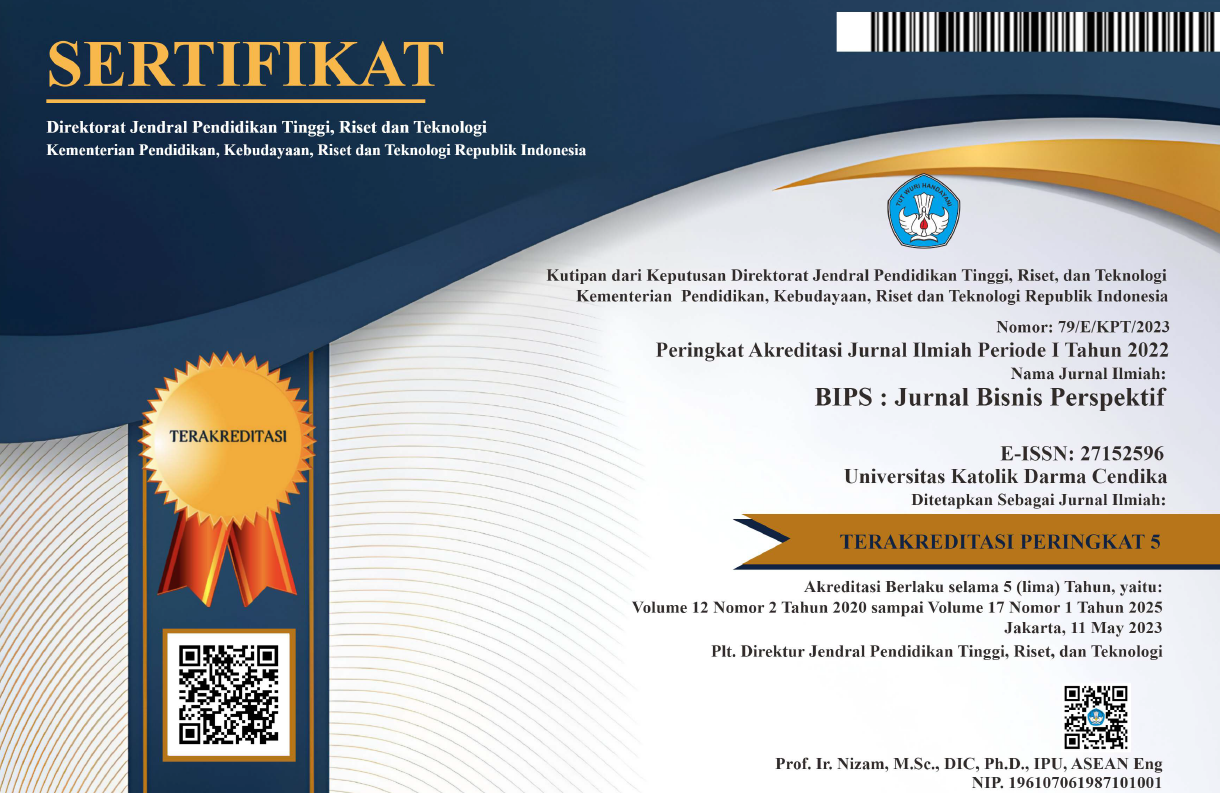Pengaruh Kualitas Layanan, Relational Bonding, Dan Brand Image Terhadap Loyalitas Nasabah
DOI:
https://doi.org/10.37477/bip.v11i1.13Keywords:
service quality, relational bonding, brand image, customer loyaltyAbstract
In today's banking industry experienced sharp competition, which requires BRI banks to improve their performance, among others, by improving the services quality is one key to business success. Besides the BRI banks must maintain a brand image that is good in the eyes of their customers, and continue to establish harmonious long-term relationships with its customers so that customers remain loyal to the BRI Bank Branch of Jombang. This study aims to test and analyze relationships partially or simultaneously service quality, relational bonding and brand image of customer loyalty BRI Bank Branch of Jombang. While the population in this study all customers of BRI Bank Branch of Jombang and the sample of this study was 90 with sampling techniques that were accidental sampling that is customers who easily found and willing to fill out the questionnaire that the author proposed. The analysis technique uses multiple linear regression analysis with SPSS Version 20.0. The results of partial hypothesis test is 1) service quality not significant effect on customer loyalty with sig. = 0.817 > 0.05 so the hypothesis is rejected; 2) relational bonding significant effect on customer loyalty with sig. = 0.003 < 0.05, so the hypothesis is accepted; 3) brand image significant effect on customer loyalty with sig. = 0.001 < 0.05 so the hypothesis is accepted. The results of simultaneously is service quality, relational bonding and brand image have a significant effect on customer loyalty with Sig. = 0.000 < 0.05 so the hypothesis is accepted.
Published
How to Cite
Issue
Section
License
Authors publishing in this journal agree to the following terms:
- The author retains copyright and grants the journal rights of first publication with the work simultaneously licensed under a Creative Commons Attribution ShareAlike License License that allows others to share the work with acknowledgment of the author's work and initial publication in BIP's: Journal of Business Perspectives.
- Authors may include separate additional contractual arrangements for non-exclusive distribution of the published version of the journal (e.g., submit to an institutional repository or publish in a book), with an acknowledgment of the original publication in this Journal.
- Authors are permitted and encouraged to post their work online (e.g., in institutional repositories or on their websites) before and during the submission process, as it can lead to productive exchanges, as well as citations of previously published work.
Each author is expected to complete the copyright process with a document of the originality of the manuscript, the templated document is below:


7.png)


6.png)
2.png)


